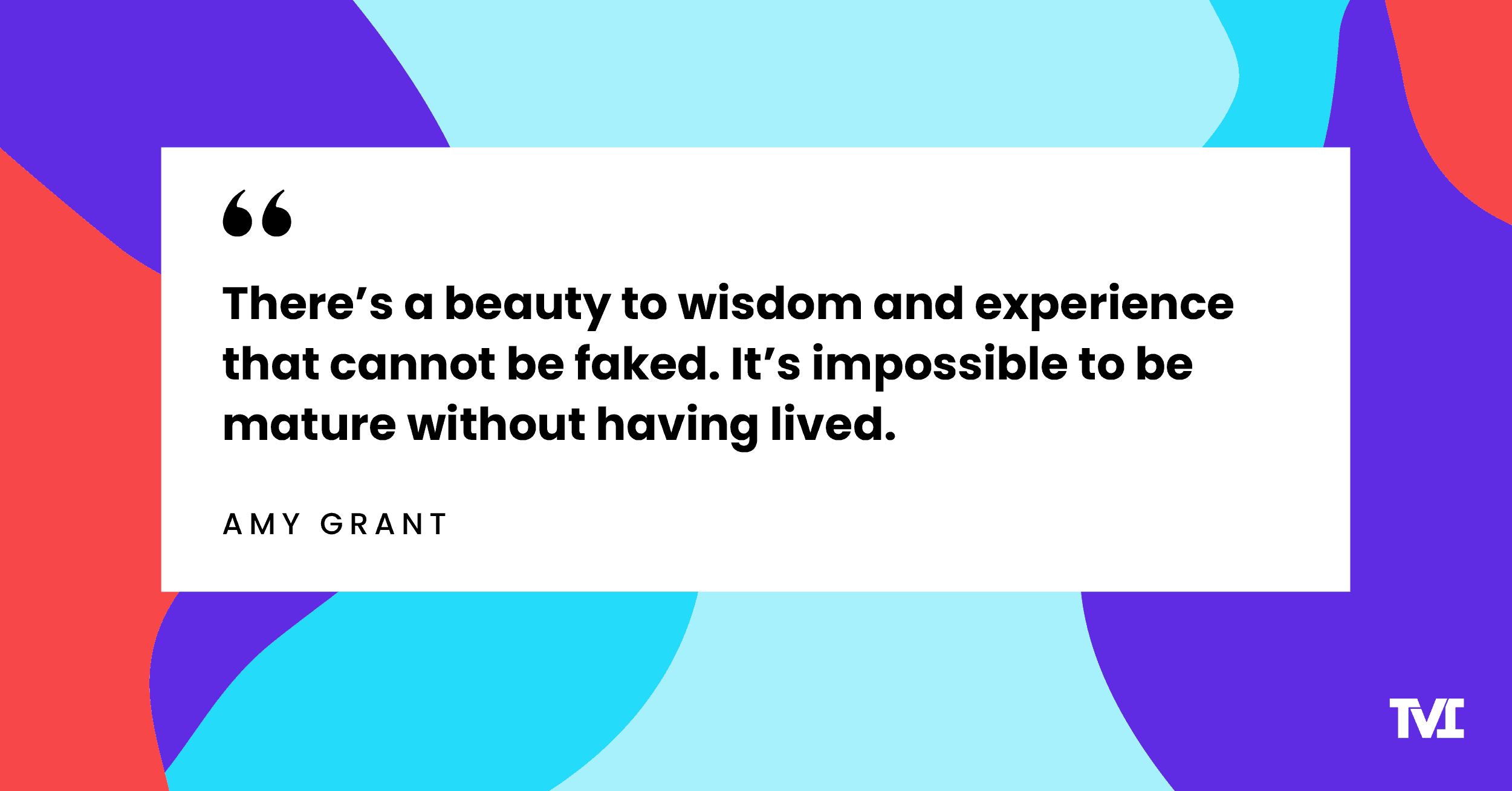Table of Contents
I travel a lot, and more often than not, when I arrive in a foreign city, my plane lands after dark.
Without fail, every time I look out at the glowing lights of a new city, I start to feel anxious.
What was I thinking coming here?
How will I navigate this unfamiliar place?
Is it too late to turn back now?
The next morning, however, when the sun is shining, and I can see the scenery clearly, those anxiety-ridden thoughts vanish. They’re replaced by awe and eagerness to start exploring.
This is how it is with all new things.
Whenever we try something new, our brains are hardwired to make us question the break in our routine.
But anyone who has frequently stepped outside their comfort zone and tried new things will tell you that overcoming the initial aversion to change can open new opportunities and make life more fulfilling.
In this article, I’m going to dive deeper into the roadblocks people face when they want to try something new, and how to overcome them—with plenty of quotes to inspire you along the way.
Why is it so hard to try something new?
Here’s the simple answer to this question: Humans are often afraid of the unknown. Familiar things are more comfortable and easier while trying new things requires a lot of effort and courage. Usually, we avoid new things simply because we are choosing the easier, less intimidating option.

From an evolutionary standpoint, it makes sense to fear the unfamiliar. Imagine you are a primitive human, living in the wild. One day you’re out hunting or gathering, and you come across a cave you’ve never seen before.
It wouldn’t make sense to go running into the cave blindly—unless your intention was to get eaten by a bear. Instead, you’d approach cautiously, and if it seemed too risky, you’d skip the cave altogether.
In our distant past, those who survived were those who practiced caution and were wary of new things.
However, those ancient feelings can and do persist in our modern brains. And the “fear of the cave” can get in the way of you taking a chance on a new career, new hobby, or new relationship that could enrich your life.
Humans have a great preference for things that are familiar and safe. It’s easy to fall into habits and allow them to run on for a long time, without question. (This isn’t always a bad thing—taking a morning walk with your beloved dog, for example, is a great habit.)
But sometimes, opting for comfortable habits instead of branching out to try something new will hold you back in life—or worse, bring you harm. And when you do step out of your comfort zone, lots of surprising and wonderful things can happen.
What are the benefits of trying new things?
When we’re navigating our young adult years, it’s virtually impossible not to try some new things. Whether you’re a college student planning your career, making new friends as an adult, or simply developing your own brand of cool, new things are coming your way.
And these new things can change your life for the better if you have the right mindset.
Here are some of the benefits of trying something new:
It opens up new opportunities
The biggest benefit of trying new things is also the most obvious. When you dare to try something new, you’re far more likely to experience new opportunities in life—in your career, your relationships, and your inner growth.
For example, let’s say that you’re thinking about joining a new gym. You’re a little intimidated—you can picture yourself tripping over a machine or changing nervously in the locker room.
But if you swallow your anxiety and join the gym, a million different things could happen. You could discover a new love for yoga, meet a friendly stranger and make a new friend, or decide to start training for a marathon.
Here’s a tip: When you’re thinking about trying something new, sit down and write out a list of the positive outcomes you can imagine. This will help you counterbalance the anxiety you may naturally feel.
It builds up your wealth of experience
Wisdom is one of the most valuable and desirable human traits out there. With wisdom comes maturity, grace, and inner peace. But to get it, you need experience—and experience only comes to those who try new things.

Every time you try something for the first time, you add to your well of life experiences. I don’t only mean big experiences, either. Certainly, traveling to a new country or picking up skydiving will give you valuable experiences, but so will meeting new people, tasting new foods, trying new hobbies, or learning new skills.
It builds courage and character
I’d be lying if I said that trying new things will always be a wholly positive experience. Unfortunately, sometimes when you try something new, a few of the bad outcomes you imagined at the start may come true. (I’m cringing as I write this, thinking about my failed attempts to play tee-ball as a kid.🤦♂️ )
However, even bad first-time experiences can often turn into lessons that change our perspective in a profound and useful way. At the end of the day, you still walk away from a less-than-perfect new experience knowing more than you knew when you went into it. And there’s value in that.
Something to keep in mind: Whenever you’re trying something new, it’s important to be forgiving, patient, and kind to yourself. Even if the experience ends up being enjoyable, you’re still pushing your boundaries, and you’re bound to be feeling more vulnerable.
It makes you a more interesting person
Have you ever met someone who has endless incredible stories to share? They’ve traveled the world, have well-developed hobbies, or they seem to know lots and lots of other interesting people?
These folks have worked hard to conquer their fear of the unknown. As a result, they are some of the most fascinating and engaging people on the planet.
If you also want to be someone who other people consider to be interesting, then you’ve got to be willing to try new things—things that less courageous people will turn down without a second thought.
How to try something new in your career
Trying something new with your career path is different from picking up a new hobby or going to a new event.
If you’re in your early years of working, you may feel like everything you do is brand new, and that can be exhausting. If you’ve been working at the same job for a while now, then trying something new can be uncomfortable at best and terrifying at worst.
If you’re plotting a career move, I have a few tips that can make the process a lot easier and give you more confidence during the transition.
Tip 1: Use this exercise to let your imagination run wild
As soon as you start thinking about trying something new, it’s easy for that little voice of fear to take over. You might talk yourself out of trying new things, because your subconscious is saying things like:
I’ll never be able to do that.
I’m too young/old to try that.
Everyone will laugh at me if I do that.
I am not good enough to try that.
It’s not easy to quiet these kinds of thoughts, but there’s an exercise you can do to get around some of this negative self-talk.
I’ve listed a few prompts below, and your job is to fill in the blanks with as many answers as you can think of.
⚠️ Do not overthink it!
If it pops into your head, write it down, even if it seems outlandish to you in the moment. We’ll refine your list in the next tip I give you.
Try New Things Exercise:
Fill in the blanks with your answers. Aim for 20 – 30 answers total.
“If I could go back in time over and over, the five or six different jobs I’d like to try would be __________.”
“If I didn’t care what other people would say, I would try ________.”
“If money weren’t an issue, I would try ________.”
“If I was guaranteed success, I would try ________.”
Tip 2: Ground your imagination with research
If you filled out the prompts above, you should have a healthy list of potential careers, hobbies, or new experiences to try.
Now, it’s time to decide which ones you want to pursue now, and which ones you’ll put on ice for later (or keep as a daydream).
Separate the list you’ve made into hobbies/pastimes and career paths. For the hobbies, you can organize them by which ones would be easiest to begin, and which ones would take more time and resources.
Then, start researching how to get started, and you’ll be on your way.
With the career options, which we’ll focus on for the rest of this article, you can do some deeper research to find out important information that can guide your next move.
Try to find the following information for every career move you’re considering:
- Typical salary of the job you’re considering
- Number of hours expected in any given role
- Reviews from people who have worked at a company you’re pursuing
- Stories from folks who have made a similar career move to the one you’re considering
This information-gathering stage will help you decide if it’s worth pursuing this new career path or if it’s better left in daydream-land.
Tip 3: Look for a mentor to guide you
It’s always more intimidating to try something new on your own. It gets a lot easier if you can follow the advice of someone you trust who has walked a similar path. In other words, you should look for a mentor.
Mentors come in all shapes and sizes—they could be someone you are currently working with, a friend or family member who has relevant experiences, a career coach, or someone in your online network.
You can read more about finding the right mentor and being a good mentee here:
Tip 4: Try it part-time first if you can
Today’s working world is more flexible than ever—in the wake of the Covid-19 pandemic, it’s easier to experiment with things like freelancing, remote work, and hybrid working situations.
This means that you may be able to try out a career change in a smaller capacity before taking a big leap.
For example, let’s say you’re working in retail right now, but you want to try a career as a freelance journalist. That’s a big switch from what you’re doing now and would mean a pretty significant change to your entire career.
However, your current job leaves you with a few free evenings every week.
So you decide to enroll in a local journalism course and get a feel for what it might be like to work as a journalist full time. You may even make some connections to help you make the transition (see tip #2). Or you may realize that journalism isn’t for you. Either way, you learned something new and are no longer just fantasizing.
Check out these resources for more guidance with this tip:
Tip 5: Make a contingency plan
If you want to combat the anxious feeling that comes with trying something new in your career, the best advice I have is to develop a contingency plan, just in case things don’t go as well as you hope.
For example, suppose you’re leaving your current job to try freelancing. In that case, it’s in your best interest to maintain a good relationship with your former employer (unless you need to cut them out because you’re dealing with a toxic boss).
Perhaps they can agree to send you some freelance work in the meantime, or at least give you a good reference if you need to find a new in-office job later on.
If you’re looking to change companies, don’t be afraid to accept multiple job interviews, even if your heart is set on one specific organization. Hopefully, the one you want will work out, but if not, you’ll have a backup to keep you secure.
Making contingency plans doesn’t mean you’re admitting defeat before you even start. When it comes to planning your career, you can still be adventurous and try new things while devising clever ways to protect yourself no matter what happens next.
Trying something new isn’t always easy, but it does get easier the more you do it. As you experience the benefits, you’ll find that the next time you have the chance to step outside your comfort zone, you’ll seize the opportunity.









